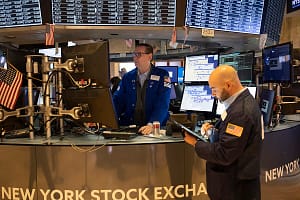23 March will mark three years since the first nationwide lockdown to curb the spread of Covid-19.
While the voracity of the virus has thankfully quelled and the UK is no longer under lockdown restrictions, the experience has had a lingering effect on our investment tastes.
Analysis of the most bought investments (on an annual basis) on interactive investor, the UK’s second largest direct-to-consumer investment platform, found that investors have increasingly favoured passively managed over actively manged funds as well as capital preservation focussed investment trusts, while meme-stock fever proved to be a flash in the pan, with appetite for UK blue-chips persisting.
Shift from active to passive
When it comes to funds, actively managed portfolios were popular among ii customers, with those from the Baillie Gifford stable accounting for four of the top 10 bestsellers between 1 March and 31 December 2020. Fundsmith Equity tops the list over the period and Lindsell Train Global Equity also makes the cut.
This trend has since reversed – although Fundsmith Equity remains in its usual position at the top of the table and is the sole actively managed fund on the list so far this year (to 17 March 2023). The prominence of Vanguard has risen: seven of the top 10 bestsellers are managed by Vanguard, of which three are from the LifeStrategy line-up.
While globally diversified funds continue to prove popular throughout the pandemic and beyond, there has been a renewed appetite to UK focussed funds over the past two years. UK portfolios didn’t feature in the top 10 list until 2022, with Vanguard FTSE UK Equity and latterly the FTSE UK Equity Income Index fund making the cut.
Investment trusts
Scottish Mortgage, City of London, BlackRock World Mining have been staples on the top 10 bestsellers list since the start of the pandemic, with Smithson and Polar Capital Technology Trust making frequent appearances as well. But there has been a more eclectic mix of portfolios among the investment trust bestsellers over the years.
There has been a notable shift away from emerging market strategies in favour of capital preservation focussed investment trusts over the past two years – a period in which inflation and interest rates climbed rapidly – with Capital Gearing and RIT Capital Partners making the cut in recent years while Monks and Fidelity China Special Situations dropped out.
Alternative energy focussed investment trusts Greencoat UK Wind and The Renewables Infrastructure Group have been climbing up the bestsellers list since 2022, with the latter making the top 10 cut at the start of this year.
Myron Jobson, Senior Personal Finance Analyst, interactive investor, says: “Our investment preferences have shifted since the onset of the pandemic, and may well shift again. A love affair with actively managed funds during the bull run post financial crisis has given way to a hankering for passive solutions as the high inflation and interest rates environment weigh on markets. And while our investors continue to favour funds with fingers dipped in different investment pies across different sectors and regions, there has been a renewed appetite for UK-centric portfolios in recent times. This trend coincides with the strong performance of the FTSE 100 – the only major stock index to deliver investors positive total returns when also including dividend.
“It would be nice to think the return of ESG portfolios in the investment trust bestsellers list reflects the growth of sustainable investing more broadly, as the pandemic raised some fundamental questions about how we live and how we work, and the sort of planet we want to live in. However, with both Greencoat UK Wind and The Renewables Infrastructure Group offering attractive dividends, it is more likely a reflection of a broader trend favouring income stocks in a low growth market.”
GameStop, meme stocks and crypto
Myron Jobson says: “Our data shows that our customers participated in the ‘meme-stock’ phenomena which reached fever pitch in early 2021, with US video games retailer GameStop and cinema chain AMC ranking highly. But when you look at the full year data, they don’t feature in the top 10, suggesting that it was a ‘flash in the plan’ moment.
“For many mainstream investors, investment in Argo Blockchain is a speculative, high-risk play on cryptocurrency growth story, without having direct holding in cryptoassets. It was the second most bought stock in 2021 – a year during which many crypto surged in value. The subsequent downturn in performance of crypto aligns with a wane in interest in Argo Blockchain, which has fallen out of the list.
“More broadly, investors continue to keep faith in FTSE blue chip stock – many of which pay a dividend. Lloyds Banking Group, BP, and Rolls Royce have retained a place in the top 10 bestsellers list since the pandemic, while Tesla, Barclays, Boohoo and GSK have been frequent constituents.”
Where next for investments?
Myron Jobson says: “Where next for investments?’ is the burning question in the minds of many investors as the collapse of Silicon Valley Bank and issues with Credit Suisse weigh on markets, stoking concerns that the financial system still has a soft underbelly which is particularly exposed when central banks rapidly lift borrowing costs. The fear is there might be other banks that are struggling financially due to the rise in interest rates.
“‘Amid the uncertain backdrop for global markets, keep calm and carry on is the oft quoted investment mantra that’s worth remembering. If you don’t need to sell, waiting until the dust settles and then checking that your investments are still aligned to your long-term goals could prove prudent.
“Ideally, even when markets are rough it is still worth keeping your money invested – for those who can afford to do so amid the cost-of-living crisis. Nervous investors can drip feed investments monthly to help smooth out the inevitable bumps in the market, buying fewer shares when prices are high and more when prices are low – a process known as pound-cost averaging.”





Leave a Comment